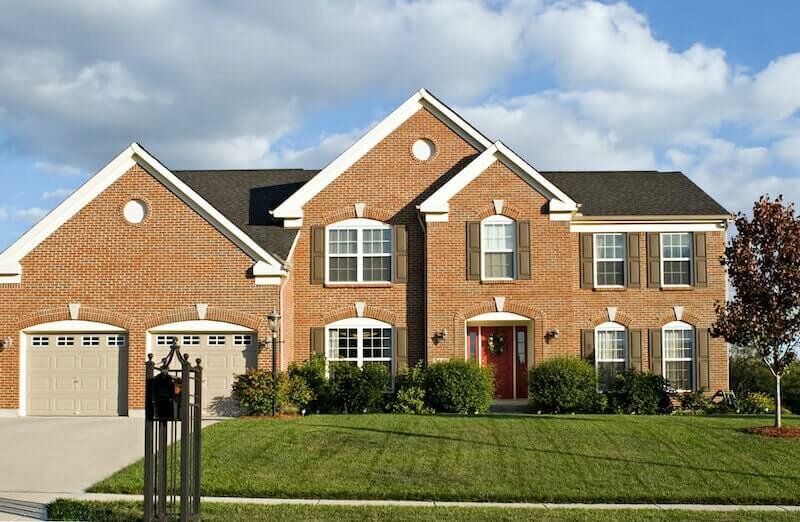The cost of living in New Hampshire is slightly higher than the US average. According to a cost of living calculator, the US index average is 100, while New Hampshire has 105.4.
Understandably, it’s vital to consider the cost of living when planning a move to a new state. Since New Hampshire promises a lot, it’s only right to see how the costs add up.
The indices above are vague. Hence, we’ll take the time to dive deeper into the figures. Here, we’ll detail each element that factors into the costs of living in New Hampshire.
We’ll start with the core element of livelihood in any state—real estate.

Real Estate Market in New Hampshire
To live comfortably in New Hampshire, you need a good house. But, the current real estate realities in New Hampshire make affordable housing a challenging prospect. Homes, condos, and other habitable properties are now costlier than they used to be.
What’s more surprising is these properties are selling out faster than ever. For example, a house or condo listing in New Hampshire used to take about 50 days before being occupied. Now, on average, listings disappear shortly after 18 days.
The reason for this is simple; there are more buyers than sellers in major cities. This scarcity hikes housing prices in New Hampshire. Even on we buy homes in New Hampshire websites, finding a suitable house can be a hassle because they exhaust their portfolio in no time.
Compared to the easy access of one year ago, family home inventory is down by 37%. The same reality applies to condos, which are about 48% down. So, if you’re going to move to the state, you’ll need significant capital and a steady income.
For current residents, now is the best time to get a cash offer for a house. More people are finding themselves in the state for one reason or the other, and they need homes.
Real Estate in New Hampshire by Location
The northern counties in New Hampshire have high real estate prices. In Carroll County, the average cost of a family home is $400,000—an almost 41% increase from a year before.
In Belknap, the average family home cost is $360,000. However, areas like Coos County have cheap family home options to the tune of $207,000 (though that’s a 38% increase from the previous year).
Hillsborough has family homes for sale at $435,000 (22.5% increase). Rockingham is the most expensive county, selling at about $509,000.
Hotspots of companies that buy houses, Salem, Bedford, Vermont, Maine, Portsmouth, and Nashua all witness speedy home sales. Competition is high in these metro areas, thereby directly influencing the average cost of living in New Hampshire.
Costs of Living in New Hampshire
Several factors influence the overall cost of living in New Hampshire. They include:
Bills and Utility Costs
Beyond real estate, bills and utility costs are high in New Hampshire. Utilities, in this case, include electricity, internet, cable, gas, and water.
When you consider all these factors, the average utilities cost totals about $477 per month. Fundamentally, electricity cost is at an average of $169.35. Natural gas costs about $107, with internet and cable costing a combined $160. For water, you can expect to pay an average of $40 every month.
While some states have utility costs higher than New Hampshire’s, the state’s bill is still on the high side.
Transportation Costs
Being a densely populated urban area, transportation in New Hampshire costs more than the average American city. If you’re a New Hampshire resident, transportation hassles can tempt you to move out of state and sell your house.
Even if you own a car, the cost of fuel and gas can leave a major dent in your finances. About 88.7% of commuters in New Hampshire drive personal cars to work. When you compare to the national average of 85.5%, that’s about 3.2% higher.
In New Hampshire, gas costs above $2.13 per gallon. In one year, the average motorist will spend in the range of $800 to $900 on fuel or gas.
Regarding car insurance, the cost is about $1,394, against the national average of $1,517. Either you own a car or use public transport in New Hampshire, the average transportation cost you’ll incur is $1,500. Transportation is a big deal in New Hampshire, worsened by frequent heavy traffic situations.
Housing Prices in New Hampshire
Getting a house is vital, and it takes a lot of work in New Hampshire. Beyond having the money to get a house, it isn’t easy to find listings in the state.
A major cost factor to consider is the ‘age of the property.’ Houses built over a century ago are cheaper than newer ones. For context, housing units built after 1939 have an average cost of $224,000. In contrast, houses built after 2014 cost an average of $372,000.
If you’d like to rent a living space, the average monthly cost is $1077. For comparison, the national average is $1,023.
When buying a house in New Hampshire, consider options like “sell my house fast Bedford.” You can also do related searches for other counties of interest. Homeowners using the “sell my house fast” options need to liquidate their assets immediately. Hence, they tend to offer affordable prices.
Food and Shopping
Another factor influencing the cost of living in New Hampshire is food. As with other factors, the cost varies per state. In New Hampshire, one adult can spend about $3500 on food yearly. For families with an average of four members, the cost rises to an average of $9970.
The numbers for food and shopping in New Hampshire are higher than the national average. For example, the national average for a single adult is $3,200, while for a family of four, it’s $9,300.
Health and Medical Costs
New Hampshire’s health care is the only area where the cost is lower than the national average. The National health care figures (either personal or insurance costs) stand at about $4,266. For New Hampshire, the health care cost is lower, at $3,323. The affordability of the state’s health care system is a perk of moving to New Hampshire.

Average Cost of Living in New Hampshire
In the section above, we’ve explored the various factors influencing the cost of living in New Hampshire. Other factors deserving of honorable mention are; child care and income taxes.
Child care in New Hampshire costs a fortune, about $10,000 per annum. The national average cost for child care and early childhood education is $8,900.
The tax burden, on the other hand, is lower in New Hampshire, costing about $5700. Taxes vary per state, with the national average standing at about $6,500.
As with every other state, other factors like entertainment, clothing, and luxury, will also factor in at some point. But your personality and wants determine the cost you’ll incur in these non-essential areas.
From the individual cost listings and calculations above, the expenses of living in New Hampshire are on the high side. Hence, a stable income is important for a good quality of life in New Hampshire.
Final Thoughts
The cost of living in New Hampshire varies from person to person in New Hampshire. Therefore, you can’t base your calculation on another person’s reality.
The estimations above give a rough idea of the cost reality. New Hampshire is a great place to live, with several perks. But apart from healthcare, other expenses are higher than the national average.
